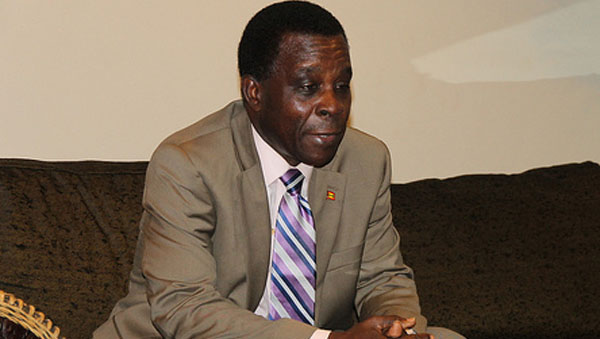By Linda Straker
Contributing Writer
ST. GEORGE’S, Grenada, November 21, 2018 (CMC) – Prime Minister, Dr. Keith Mitchell, today, presented an EC$1.134 billion budget to Parliament, saying the fiscal package is intended to give Grenadians hope and confidence.
He announced a reduction in personal income tax, corporation taxes and an increase in ex-gratia payment to Grenadians.
“We have to be optimistic about our future, because we cannot build a country on pessimism. Let us approach our future with confidence; the confidence that emanates from the acceptance of our collective ability to overcome difficulties; the confidence that emanates from the economic growth being experienced, after years of shared sacrifices,” Mitchell told legislators.
He said that the Recurrent Revenue is estimated at EC$780.4 million, while Recurrent Expenditure has been pegged at EC$637.8 million.
Prime Minister Mitchell, who is also the Finance Minister, said that as part of the initiative to build a better Grenada and improve the lives of individuals, his administration had agreed on an increase in ex-gratia payments to a minimum of EC$350, commencing in January 2019.
“This would result in increased incomes for 280 persons,” Mitchell said, adding that the government maintains an unwavering commitment to the people of this country, particularly to those most vulnerable.
He said at the start of the new tax period, next year, personal income tax would be reduced to 28 percent for income in excess of EC$5,000 per month. Similarly, Corporate Tax will be reduced by the same margin.
Mitchell added that the percentage points reduction will obviously affect the government’s revenue collection, “but more importantly, it will help to stimulate the local economy, putting more disposable income in the hands of workers and for companies, affording them extra capital to potentially re-invest and grow their respective businesses”.
The prime minister said that persons, who would have secured judgements against the government for various infractions, relief was on the way, adding “government is keen to finally settle these claims, some of which will be done posthumously”.
He said the US$30 million loan, received on concessionary terms from the World Bank, makes provisions for the government to reduce public debt.
He said a portion of the funds will be used to compensate claimants, including those whose claims pre-date his administration.
He said the government in partnership with the Grenada Hotel and Tourism Association, The Tourism Authority and the Grenada Development Bank, have teamed up to provide support to small indigenous hoteliers.
“The support would be in the form of a soft loan facility at the Grenada Development Bank. The revolving fund will finance training and marketing programs to support the efforts of small hotels that are members of the hotel association. An initial three million EC dollars would be made available for the program,” Mitchell revealed.
The Finance Minister told the nation that the vision of his administration is for a Grenada, where confidence emanates from the economic growth being experienced after years of shared sacrifices.
He said history would record that Grenada is not defined by its borders or the boundaries of its land mass, but rather, it is defined by people, who have been unified by a cause, who share a common value system and who are committed to a common vision, for the type of society they wish to live in and one which future generations will inherit.
In his address, Mitchell underscored the importance of the country having to deal with the impact of climate change, noting that “our efforts to successfully incorporate disaster relief provisions into some of our loan instruments are well documented”.
He said this is a major step towards building fiscal resilience, and the amendment to the fiscal legislation in 2015, provided an important anchor for sound fiscal policy and has contributed to a much stronger fiscal and debt position.
He said the amended legislation not only seeks to entrench fiscal discipline, through the rules that are enshrined, but it also mandates the establishment of a Contingency Fund, upon attaining a debt-to-GDP ratio of 55 percent.
“This fund is geared towards assisting response and recovery efforts in the event of a natural disaster. Mr. Speaker, we are living within our means, which is allowing us to generate fiscal surpluses that are being saved and invested to build buffers against economic shocks. In short, we are providing another avenue to build our fiscal resilience.”
But Mitchell told Parliament that there cannot be talk of transforming the economy without addressing public sector modernisation in a real way.
“Although this concept was the subject of numerous discussions, over a decade ago, we must amplify our efforts to ensure that goods and services are efficiently and effectively deployed to our citizens. Accordingly, we have agreed to take a phased approach to this process.”
He said, as a result, the government has reached out to the World Bank for support, which gave life to the Grenada Digital Governance for Resilience Project with the objective being to build a smart, resilient government that adopts a “Whole-of-Government” approach to the implementation of critical public policies and services: by modernising public service management; leveraging digital technologies to deliver integrated services to citizens; promote sectoral transformation; and forge inclusive strategic partnerships to promote change and drive reforms.
He said the project will identify, improve, and fortify the core institutional functions, processes, and information systems that constitute the backbone for the development of e-government services to citizens.
“It would also lay the foundation for critical public sector systems that keep the government functional, including in times of natural catastrophe or other challenges,” Mitchell noted.
 Pride News Canada's Leader In African Canadian & Caribbean News, Views & Lifestyle
Pride News Canada's Leader In African Canadian & Caribbean News, Views & Lifestyle





